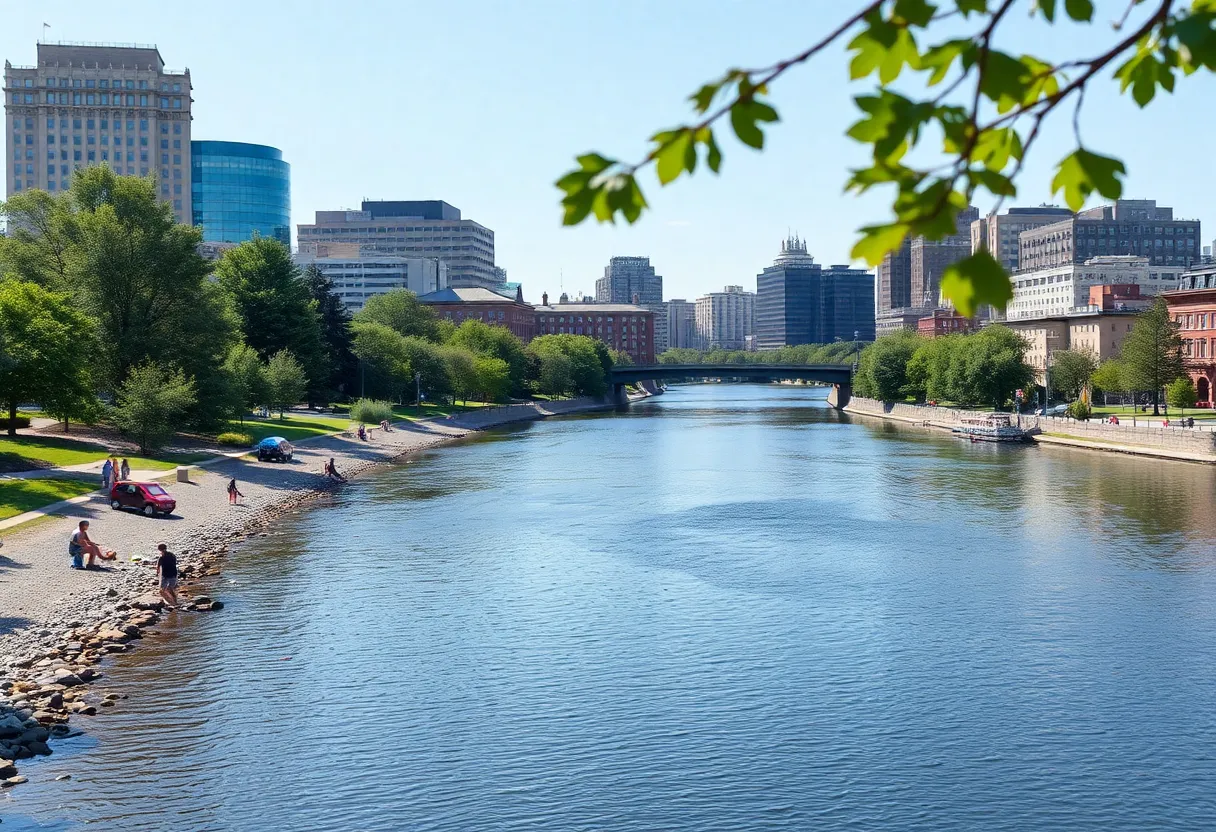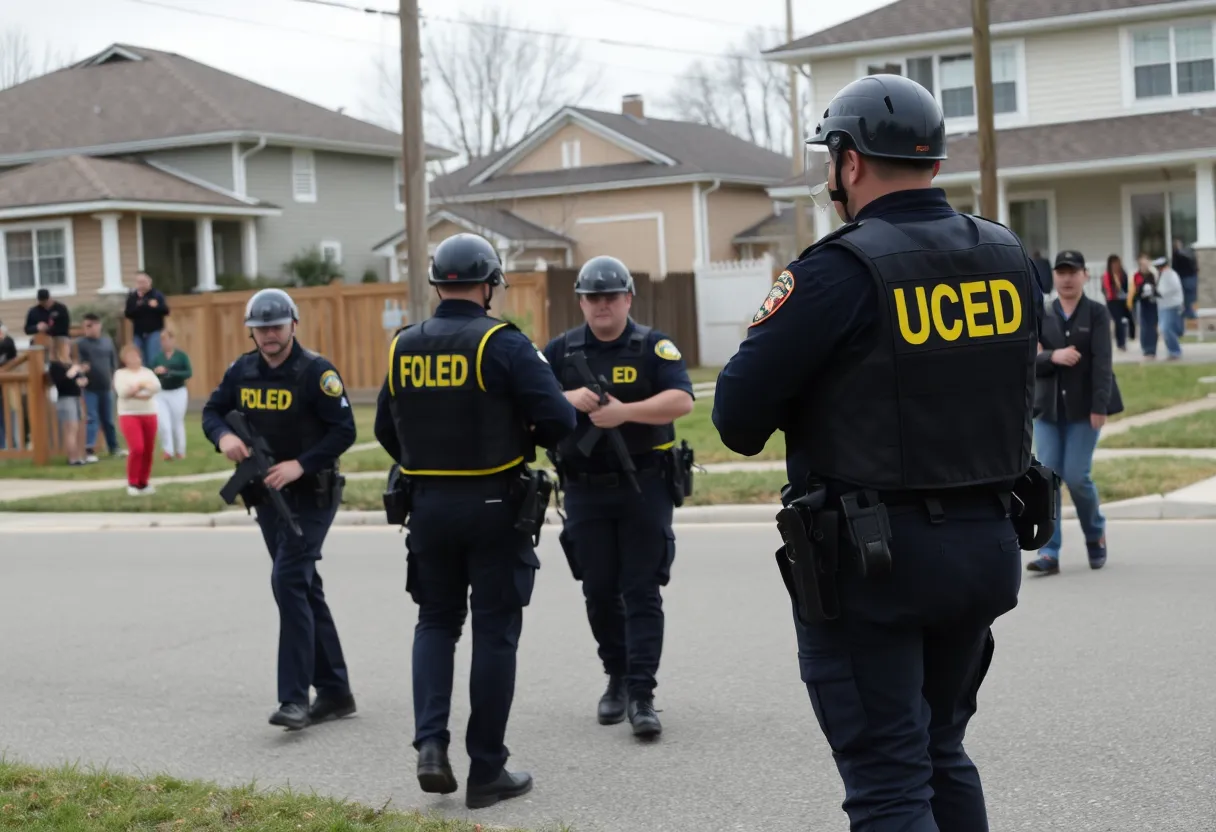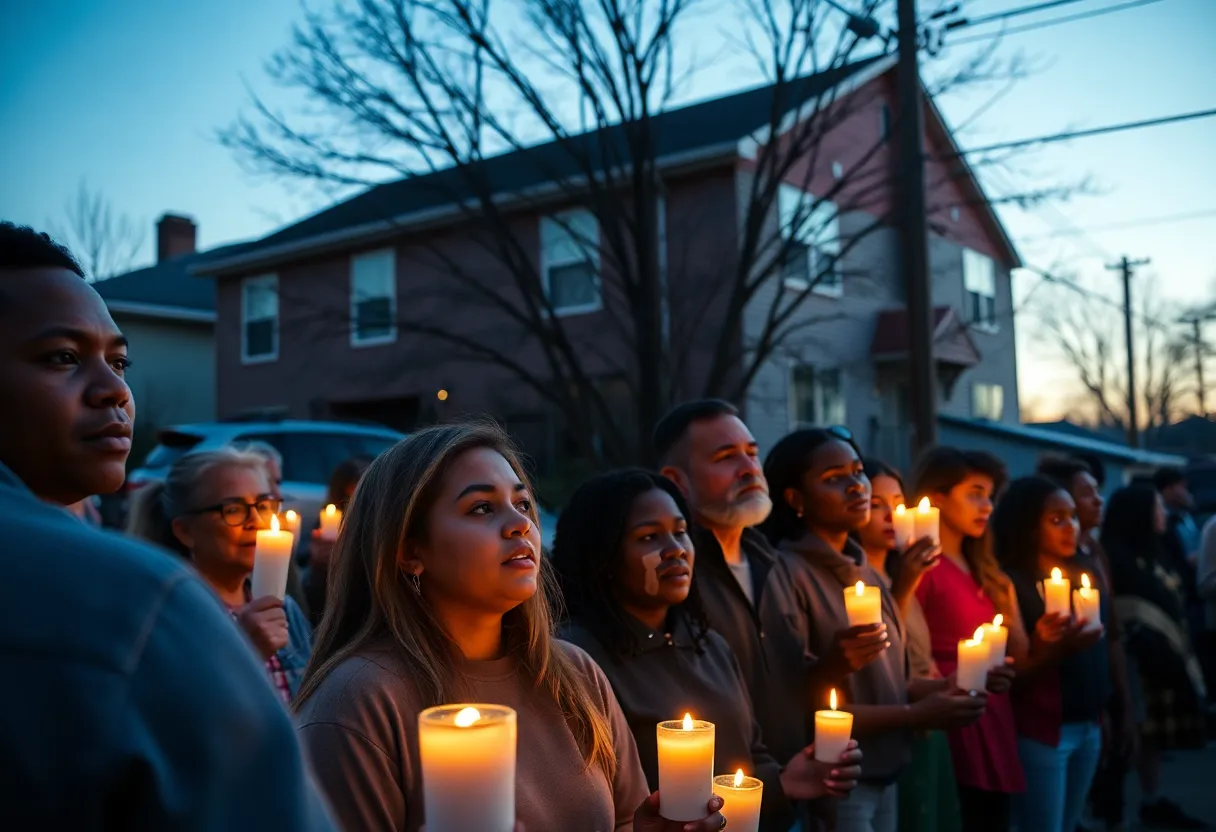News Summary
Boston is looking to leverage recent successes from cities like Portland, Oregon, to achieve cleaner waterways, specifically in the Charles River. With significant sewage discharges during rainstorms posing health risks, the city recognizes the need for urgent investments in infrastructure to ensure safer recreational water activities. Proposed solutions like underground tunnels and green infrastructure could help reclaim urban beaches and improve water quality, making the Charles River a healthier destination for residents and visitors alike.
Boston Aims for Cleaner Charles River Amid Portland’s Remarkable Success
Boston, a city known for its rich history and vibrant culture, is now setting its sights on achieving cleaner waterways, particularly in the beloved Charles River. With recent successes in cities like Portland, Oregon, where residents celebrated a full year without any sewage discharges into the Willamette River, Boston has the perfect opportunity to follow suit. Swimming and paddling in an urban river is no small feat, and the positive changes in Portland show just what is possible with the right investments and commitment.
Current Challenges Pose a Health Risk
Unfortunately, Boston is facing a recurring problem where every major rainstorm leads to sewage discharges into the Charles River. The consequences are concerning for anyone looking to enjoy recreational activities by the water. In fact, over the past two years, more than 100 million gallons of sewage have flowed into the Charles during 63 storm events. Because of this, swimming is normally prohibited unless one obtains a special permit. Not to mention, rowers, paddlers, and sailors find themselves restricted from entering the water for a full 48 hours after a sewage discharge. That’s a long time to wait when you’re eager to get out on the water!
Investments Needed for a Cleaner Future
For Boston to achieve a Charles River that’s safe for swimming, much like Portland, significant investments are needed. While Boston has made substantial progress in maintaining cleaner waters since the 1980s—thanks to initiatives like the Deer Island Wastewater Treatment Plant and billions spent on infrastructure upgrades—there are still areas that need urgent attention. Specifically, there are 10 locations along the river in Boston and Cambridge that continue to suffer from the outdated combined sewer infrastructure, causing these troublesome discharges during rainstorms.
Exciting Proposal on the Table
One proposed solution is an impressive underground tunnel that would span four miles and reach up to 32 feet in diameter, designed to store stormwater and prevent sewage overflow. This project, proposed by groups including the Massachusetts Water Resources Authority, Cambridge, and Somerville, comes with a hefty estimated cost of $1.4 billion to $2.3 billion. But let’s consider the bigger picture—cleaning up Boston Harbor, which once cost over $5 billion, has yielded economic benefits estimated between $30 billion to $100 billion. With similar projects successfully developed in Portland and Paris, Boston has compelling examples to draw inspiration from.
Proven Success Stories
A successful example is seen in South Boston, where the Massachusetts Water Resources Authority constructed a combined sewer overflow (CSO) storage tunnel. The completion of this project significantly reduced combined sewer overflows in that area, with celebrations marking the event back in 2011, spearheaded by then-governor Deval Patrick. This success underscores the potential for similar positive changes in the Charles River.
Incorporating Green Infrastructure
An additional aspect that could improve the situation is the integration of green infrastructure. Simple solutions like rain gardens and bioswales can help with stormwater management, which can bring down construction costs while enhancing the urban landscape.
Reclaiming Beaches for Recreation
Imagine the joy of reclaiming beaches along the Charles River—like Magazine Beach or Charlesbank Beach—offering urban oases where city dwellers can relax and enjoy water activities as summer days heat up. With Earth Day on the horizon, this serves as an essential reminder for Boston to renew its commitment to improving the Charles River and restoring its beautiful beaches for everyone to enjoy.
As Boston looks toward the future, the aim to create a cleaner Charles River is not just ambitious but necessary for a thriving community. After all, a healthier river means a healthier city, and the time for action is now!
Deeper Dive: News & Info About This Topic
HERE Resources
Additional Resources
- Boston Globe: Charles River Swim Sewage Discharge
- MassLive: Billions of Gallons of Diluted Sewage in Mass Waterways
- Boston 25 News: Public Health Warning on Sewage Discharge
- Boston Globe: Charles, Mystic, Neponset River Report Card
- NBC Boston: Boston Area Rivers Water Quality Report
- Wikipedia: Water Pollution
- Google Search: Charles River Sewage Discharge
- Google Scholar: Charles River Water Quality
- Encyclopedia Britannica: Sewage
- Google News: Boston Sewage Discharges








